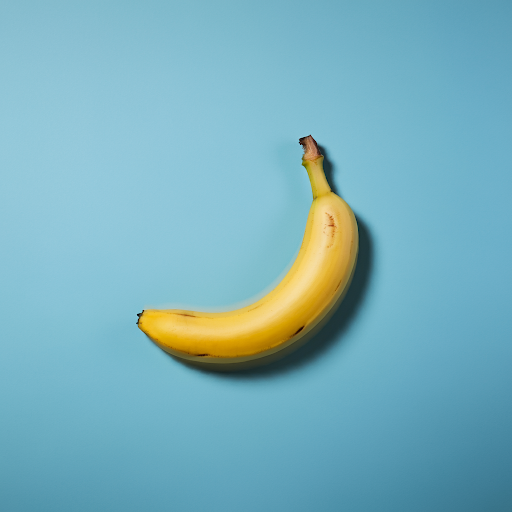
Banana Calories: How Many Calories in a Banana?
If you are looking for banana nutrition facts and calories in a banana to see if they are healthy or not, here's the scoop:
Bananas are one of the most popular fruits worldwide, known for their convenience and nutritional benefits. If you're wondering how many calories are in a banana and what makes them a healthy choice, you’re in the right place!
Caloric Content of Bananas
A medium-sized banana (approximately 118 grams) contains about 105 calories. The caloric breakdown is primarily from carbohydrates, which make up around 93% of the total calories. Here’s a quick overview of the nutritional composition:
- Calories: 105
- Carbohydrates: 27 grams
- Fiber: 3 grams
- Sugar: 14 grams
- Protein: 1 gram
- Fat: Less than 0.5 grams
Nutritional Benefits of Bananas
Beyond their calorie content, bananas are packed with essential nutrients that provide numerous health benefits:
- Potassium: A medium banana contains about 422 mg of potassium, which helps regulate blood pressure and supports heart health.
- Vitamin C: Bananas provide vitamin C, an antioxidant that supports immune function and skin health.
- Vitamin B6: One banana can provide approximately 20-25% of your daily value of vitamin B6, which is important for brain health and metabolism.
- Fiber: The fiber in bananas aids digestion and helps maintain a healthy gut microbiome.
The Role of Carbohydrates
The majority of calories in bananas come from carbohydrates. These carbs are primarily sugars (fructose, glucose, and sucrose) that provide quick energy. Bananas also contain resistant starch when unripe, which acts like fiber and can help improve gut health.
Glycemic Index
Bananas have a low to moderate glycemic index (GI) ranging from 42 to 58 depending on ripeness. This means they can provide sustained energy without causing rapid spikes in blood sugar levels.
Are Bananas Good for Weight Management?
Despite being relatively high in carbohydrates compared to other fruits, bananas can be beneficial for weight management due to their fiber content, which promotes satiety. Eating a banana as a snack can help curb hunger between meals without excessive calorie intake.
Culinary Uses of Bananas
Bananas are incredibly versatile and can be enjoyed in various ways:
- Eaten raw as a quick snack.
- Sliced into oatmeal or yogurt.
- Mashed for baking recipes like banana bread or muffins.
- Add to smoothies for natural sweetness and creaminess.
Why You Should Think Twice Before Adding Bananas to Your Smoothies
Bananas are a popular addition to smoothies due to their natural sweetness and creamy texture. However, recent research suggests that adding bananas to your smoothie might hinder the absorption of beneficial antioxidants from other fruits, particularly berries. This article explores the science behind this claim and offers insights into how you can optimize your smoothie for maximum health benefits.
The Science Behind Bananas and Antioxidants
According to a study published in Food and Function, bananas contain an enzyme called polyphenol oxidase (PPO). This enzyme is responsible for the browning effect seen in many fruits when they are cut or bruised. While this enzyme serves a protective function for the plant, it can also negatively impact the absorption of flavanols from other fruits in your smoothie.
What Are Flavanols?
Flavanols are bioactive compounds found in various fruits, especially berries. They are known for their antioxidant properties and have been linked to numerous health benefits, including:
- Improved cardiovascular health
- Enhanced cognitive function
- Reduced inflammation
Impact of Bananas on Flavanol Absorption
The study conducted by researchers at the University of California, Davis, found that adding bananas to a berry smoothie significantly reduces the absorption of flavanols by up to 84%. This means that while you may enjoy the taste and texture that bananas provide, you could be missing out on the full antioxidant benefits of your smoothie.
Key Findings from the Study
- The presence of polyphenol oxidase in bananas can break down flavanols from berries before they can be absorbed into the bloodstream.
- Participants who consumed smoothies with bananas had lower levels of flavanols compared to those who consumed smoothies without bananas or took flavanol capsules.
- This interaction highlights the importance of food combinations in maximizing nutrient absorption.
Alternatives to Bananas in Smoothies
If you're looking for alternatives to bananas that won't interfere with antioxidant absorption, consider these options:
- Pineapple: Adds sweetness and contains bromelain, which may help with digestion.
- Mango: Offers a tropical flavor and is rich in vitamins A and C.
- Avocado: Provides creaminess and healthy fats without affecting antioxidant levels.
- Coconut Yogurt: A dairy-free option that adds creaminess while being low in sugar.
The Bottom Line
A medium banana is a nutritious snack option that provides about 105 calories along with essential vitamins and minerals. Whether you're looking to boost your energy levels or add more nutrients to your diet, bananas are an excellent choice!
